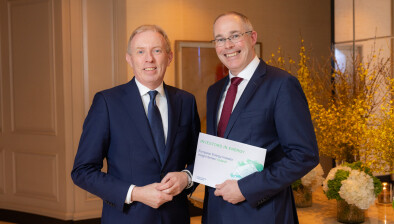High Court: Solicitors fail in application to come off record following concerns about client’s capacity mid-trial

The High Court has refused an application to come off record which was brought by the solicitors acting for an elderly woman in a dispute regarding a will. The woman claimed that she was entitled to benefit from a deceased’s estate as they had co-habited for more than 30 years. However, concerns regarding her capacity were raised by her lawyers 19 days into the trial.

About this case:
- Citation:[2023] IEHC 204
- Judgment:
- Court:High Court
- Judge:Ms Justice Niamh Hyland
Delivering judgment in the case, Ms Justice Niamh Hyland considered the expert reports as to capacity. The court held that the presumption of capacity had not been rebutted in the case despite one expert concluding in two reports that the woman lacked capacity. Accordingly, the solicitors’ retainer had not been terminated as a matter of law.
Background
The deceased died in 2011. The applicant was 78 years old and claimed that she had been in a committed relationship with him for more than 30 years and brought proceedings claiming to be a qualified cohabitant within the meaning of the Civil Partnership and Certain Rights and Obligations of Cohabitants Act 2010. As such, she claimed that she was entitled to proper provision from the estate, which was substantial.
The proceedings arose after the executor of the estate issued possession proceedings against the applicant in respect of a property owned by the deceased. However, these proceedings were adjourned to allow the outcome of the cohabitation proceedings.
The trial began in June 2021. The case was heard over 19 days which mainly involved the applicant’s evidence and cross-examination. However, following day 19, an application was made by the applicant’s solicitors to adjourn the trial owing to concerns about the applicant’s capacity.
The solicitors were not concerned about the applicant’s capacity prior to the hearing and it appeared that issues arose in a consultation after the applicant had finished cross-examination. The applicant was described as “very confused and highly distressed”. Further, she allegedly engaged with her legal team in a “wholly different manner” to previous interactions.
An interim report was provided by a consultant forensic psychiatrist (Professor Kennedy) in July 2021 which outlined that the applicant lacked capacity to give instructions or to participate in the trial.
The solicitors failed in an application to appoint a next friend in the proceedings and the High Court appointed a Medical Visitor to consider the applicant’s capacity (see C.D. v. B.B. [2022] IEHC 381). This assessment was conducted in August 2022, where the Medical Visitor expressed her satisfaction as to the applicant’s capacity to make decisions relating to property and financial affairs.
Prof Kennedy provided an updated report in November 2022 in which he again outlined that, in his view, the applicant did not have capacity to make decisions in respect of the legal proceedings.
Ultimately, the applicant’s solicitor proceeded with the application to come off record. It was submitted that the applicant lacked capacity to the point where their retainer was terminated as a matter of law.
High Court
Ms Justice Hyland began by outlining the relevant legal principles to the case. On the solicitor’s retainer, she identified that a solicitor was ordinarily required by contract to act to the end of litigation (Underwood v. Lewis [1894] 2 Q.B. 306). There was also a marked difference between coming off record at an early stage in proceedings than mid-trial.
The court noted that the solicitors accepted that the retainer did not terminate automatically if the client was incapacitated (see Blankley v. Central Manchester and Manchester Children’s University Hospitals NHS Trust [2015] EWCA Civ 18). The solicitors were correct that the question was whether the retainer had become impossible to perform give the client’s incapacity and the circumstances of the case.
For the avoidance of doubt, the court accepted that a solicitor’s retainer would permit necessary applications involving supervening incapacity (see Blankley).
The capacity to give instructions in legal proceedings was considered in Nolan v. Carrick [2013] IEHC 523, where it was held that adults were presumed to be competent to manage their property and affairs. As such, the onus of proof lay on those alleging incapacity. Further, it was stated: “The issue of the specific nature of the test [for litigation capacity] means that it is possible to have capacity to make all decisions related to litigation, but not to decide how to administer an award made.”
Having regard to relevant case law, the court stated that cognitive difficulties were not, in themselves, sufficient to establish a lack of capacity (see Scally v. Rhatigan [2011] 1 I.R. 639; Nolan v. Carrick).
The court turned to consider the expert evidence on capacity in the case. Ms Justice Hyland stated that there was no evidence in the case from the solicitors regarding their interactions with the applicant from which they thought she did not understand the proceedings.
Although Prof. Kennedy’s reports focused on capacity for the legal proceedings and found that the applicant did not have such capacity, the court held that there were difficulties with the reports. It seemed to the court, from an examination of the applicant’s answers, that she understood the core issues in the case (being whether she was in a committed relationship with the deceased).
There was nothing in the reports which showed that the applicant failed to understand the risks in litigation. Once she understood the risk, she was entitled to take such action and a willingness to do so was not evidence of incapacity.
The court referenced the applicant’s poor scores in certain cognitive tests conducted by Prof Kennedy. However, the reports did not identify what the applicant allegedly failed to understand about her case. The court accepted that the applicant was legitimately confused about her assessment by the Medical Visitor when such appointment had not been made in the ordinary way under the wardship procedure.
While the applicant had difficulties with recall, this was not sufficient to rebut the presumption of capacity, the court said (see Nolan v. Carrick; Scally v. Rhattigan). Further, the Medical Visitor’s report outlined that the applicant had sufficient capacity to manage her financial affairs and property as she was able to provide an understanding of the complexity of the property situation. The court concluded that this capacity could be extended to the litigation.
Conclusion
The court refused the application to come off record on the grounds that the presumption of capacity had not been rebutted by the expert evidence. While the applicant had certain cognitive difficulties, it was not established that she did not understand the nature of the proceedings or the issues arising therefrom.
C.D. v. B.B. [2023] IEHC 204









